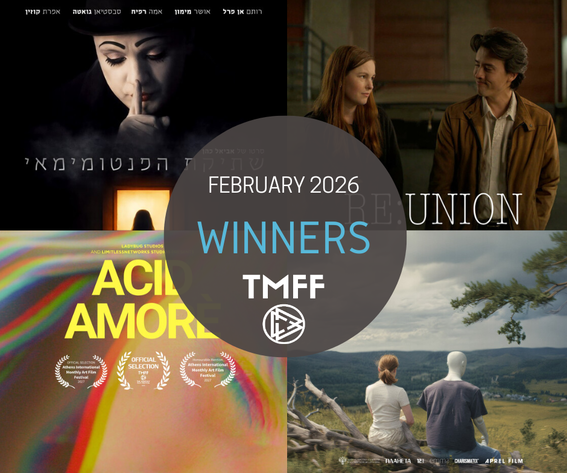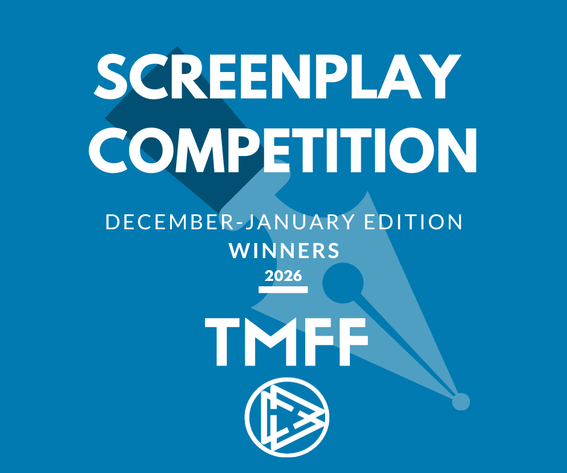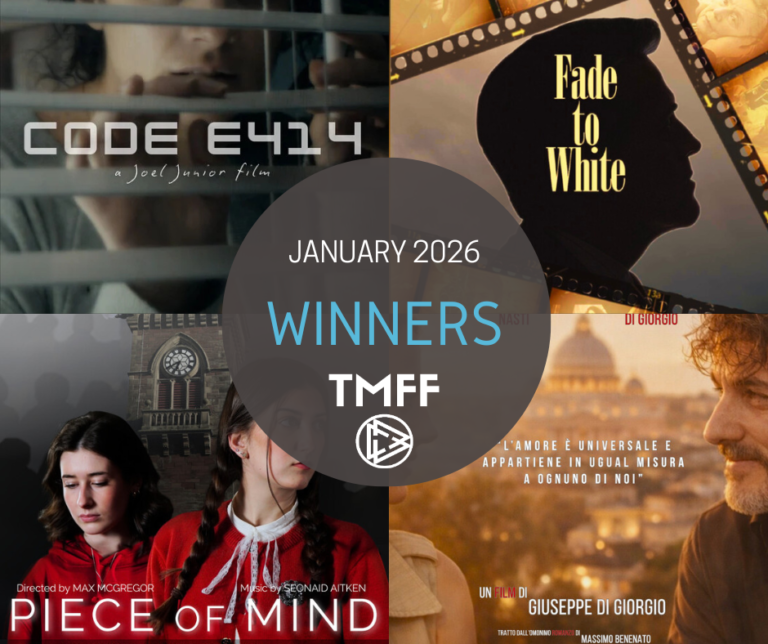If there’s a month that’s most suitable for mystery, that’s January. It’s cold outside, and the best place to be is inside, cuddled under a couple of blankets and with a warm drink in your hand. And, since this time around there are no Christmassy or New Year distractions, you can exercise your mind and watch a mystery flick. We’ve got one in mind – Jury Duty, our first Film of the Month winner for 2019. We’ve spent a bit of time chatting with its writer and director, Matheus Ronn.
JL: Congratulations, Matheus, you’re our first big winner of the year! With Jury Duty as the grand victor, we kicked off our 2019 season in style!
Matheus: I would really like to thank TMFF for nominating and awarding “Jury Duty” at the festival. The entire pre-production, production and post-production process was an extremely challenging, engaging and fun project to be a part of. Now that we are on our festival run, it’s really nice to be able to get the feedback for the work we put out. Our team really appreciates the recognition and visibility the festival is giving to our movie.
JL: We remember your previous entry in our festival, Caposhi Pop. We thoroughly enjoyed it and its Tarantino-esque style, but Jury Duty is a completely different experience, isn’t it? What determined the jump from action-packed parody to noir whodunit?
Matheus: “Caposhi Pop” is my first impression of cinema. I had just moved to the United States and was interested in the works of 90’s directors like Tarantino and Guy Richie. I used Pop Art as the main reference and therefore based every aspect of the movie on modern popular culture. The energy, passing, mood and look of it are very snappy, saturated and dynamic, with the intention of making it feel cool. “Jury Duty” on the other hand was more of and essay on awareness, where I gave the audience the chance to have their own insight to the story and making them feel as if they were a character of the film. Which they are. Without audience, there is no detective. Without detective, there is no conclusion to the crime. The main goal was to make the audience aware of its role in our audience-filmmaker conversation.
JL: Did you plan it to be a period piece from the get-go, or did this detail materialise later on?
Matheus: The spark idea for the short came while I was reading a book with the name of “Mean Streets: The Second Private Eye Writers of America Anthology”, a collections of 12 private detective stories, edited by Robert J. Randisi. As I was reading one of the chapters I realized that I, the reader, was ultimately being the detective in the story. I really wanted to figure the crimes out by myself. I then realized that I could maybe achieve the same feeling in a film. I told the idea to the writer Måns Reimer, and we started research. We found great movies like “Lady in the Lake” and “Rashomon” that we could use as references for what we were trying to achieve. After deciding on the noir style, which would bring the right tone to the story, we realized that the only way to do the movie right would be to shoot it as if we were doing it at that time, during the 1940s.
JL: Is there a correct guess with regard to the killer? And do most people you ask usually get it right?
Matheus: Yes, there is a correct answered to the question “Who killed Iris Holliday?.” Many of Jury Duty’s spectators come to me with the right answer, but when I ask them why, they can’t really give me an exact reason. They know the perpetrator but have no concrete case against that person. There are other spectators that give me a great answer to why someone could have done the murder, but don’t get the killer right. I believe that the conversation that this movie starts is what makes it different from others. If you see this film alone, you will pounder who the murder is and maybe watch it again. But If you’re watching the movie with other people, a discussion will raise and the audience will use their own conclusions to convince the others of their opinions. That’s the goal of the movie. Make the audience the ultimate jury in the case.
JL: In today’s technology-driven world, the need for instant gratification seeps its way into films as well. Personally, I love when a filmmaker trusts the audience’s intellect enough in order not to give everything away and to leave sufficient leeway for thought and interpretation. Does doing this classify as a ballsy move for a filmmaker nowadays?
Matheus: We live in a passive society where the media spoon-feeds their audience, depriving them of the opportunity to learn from the journey. More and more audiences have been absorbing information without forming a conclusion based on their own perspective about the subject. With such a passive mentality, people who seek only the result, lose the opportunity to learn during the journey and can be easily manipulated by those who do take it. In the detective whodunit Jury Duty I want to call the audience to action by turning them into the protagonist of the film and sending them into a journey where they alone have the job to figure out who killed the victim. I’m not quite sure if that can be considered a ballsy move, but I believe it’s definitely something that a less percentage of filmmakers attempt to achieve.
JL: Ruria Duprat also won our award for Best Original Score, while Max Margolin won the Cinematographer of the Month award. Have you collaborated with either of them previously?
Matheus: I’m extremely happy for both talented artist for getting this recognition for their work. Ruriá Duprat was a real blessing to me and this movie. With years of experience and a Grammy Award siting in his office, Ruriá is one of the greatest composers alive in Brazil. With such a high caliber baggage, it was with a big surprise and enormous excitement that I’ve received the news that he had offered to help me out on this project. From there on, “Jury Duty” turned from a well made student film into an actual complete short, with its own unique score and a real period piece feeling to it. I’ll always be thankful for the opportunities he gave me and the knowledge he passed on to me. Max Margolin is an extremely talented cinematographer that definitely brought the movie to an entire new level. We had previously worked on “Caposhi Pop”, which has a totally different look, and when I met him to talk about “Jury Duty” he seemed exited and interested in the challenges the project could bring. Having had a great experience with really good results on our previous film, it was easy to pretty much give him the space and help he needed to turn our vision to life. Max is very aware of his craft, knows how to work on a tight schedule, manages his team well and delivers amazing dailies. Would love to have the opportunity to work with him again soon.
JL: You’ve already received plenty of acclaim for Jury Duty, but I’m just wondering whether there is anything you would now do differently, or whether you’d rather keep everything exactly as it is?
Matheus: There is definitely plenty to learn from the mistakes we made on this film. To be honest I don’t really like to think about what I would have done differently. The movie is a statement of what I believed and wanted to share to my audience at that certain moment in time. I believe that making anything different would defeat its purpose in my journey as a filmmaker. But I’ll most definitely will be paying attention to not repeat the mistakes we made during “Jury Duty”.
JL: Any new films on the horizon, Matheus?
Matheus: At this moment Måns Reimer and I are working on a couple of feature film scripts that are going to part of our “2019 Catalogue”. The collection will consist of movie scripts and ideas intended for the domestic (Brazil), American and International market. Other than that, we are also prepping a short film to be shot this year. It will be our first attempt at the horror genre.
JL: Thanks for your time! You’re always welcome at our festival, so we look forward to seeing more of your work in the future!
Matheus: I really appreciate the interest in our movie and hope to be back at this festival soon. Thank you.









Leave a reply